Your cart is currently empty!
Tag: Electrical
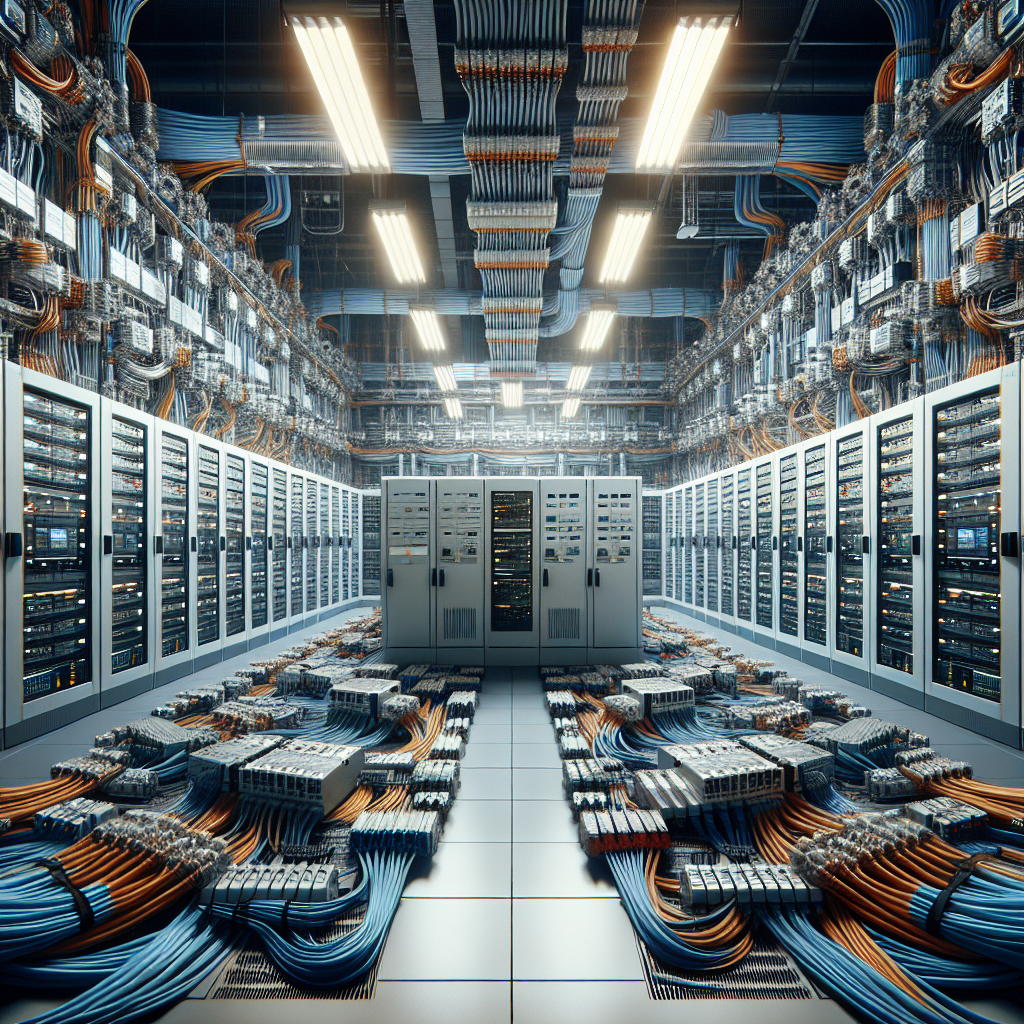
Best Practices for Maintaining Data Center Electrical Systems
As data centers become increasingly vital to businesses and organizations, it is essential to ensure that their electrical systems are well-maintained and operating efficiently. A well-maintained electrical system not only reduces the risk of downtime and data loss but also increases energy efficiency and overall performance. Here are some best practices for maintaining data center electrical systems:Regular Inspections: Regular inspections of electrical systems are crucial to identifying potential issues before they escalate into major problems. Inspections should include checking for loose connections, signs of overheating, and any other potential hazards. It is recommended to conduct inspections at least once a year, or more frequently if the data center is located in a high-risk environment.
Scheduled Maintenance: In addition to regular inspections, scheduled maintenance of electrical systems is essential to ensuring their continued performance. This includes tasks such as cleaning and tightening connections, testing backup power systems, and replacing worn-out components. Maintenance should be carried out by qualified professionals to ensure the safety and reliability of the electrical systems.
Monitoring and Testing: Monitoring and testing electrical systems on a regular basis can help to detect issues early on and prevent potential failures. This includes monitoring power usage, temperature levels, and voltage fluctuations, as well as conducting regular load testing to ensure that backup systems are functioning properly. Automated monitoring systems can help to streamline this process and provide real-time data on the performance of electrical systems.
Energy Efficiency: Data centers are known for their high energy consumption, so it is important to implement energy-efficient practices to reduce costs and minimize environmental impact. This includes using energy-efficient equipment, implementing power management strategies, and optimizing airflow to reduce cooling requirements. Regularly monitoring energy usage and implementing energy-saving measures can help to improve the overall efficiency of data center electrical systems.
Backup Power Systems: Backup power systems are essential for ensuring uninterrupted operation in the event of a power outage. It is important to regularly test and maintain backup power systems to ensure that they are ready to kick in when needed. This includes testing batteries, generators, and other backup systems to ensure they are in good working condition.
Training and Education: Proper training and education of staff members responsible for maintaining data center electrical systems are essential to ensuring their proper operation. This includes providing training on safety procedures, maintenance tasks, and emergency response protocols. Regularly updating staff on best practices and new technologies can help to improve the overall performance of data center electrical systems.
In conclusion, maintaining data center electrical systems is essential for ensuring the reliability, efficiency, and safety of these critical facilities. By implementing regular inspections, scheduled maintenance, monitoring and testing, energy-efficient practices, backup power systems, and training for staff members, data center operators can ensure that their electrical systems are operating at peak performance. By following these best practices, data centers can minimize downtime, reduce costs, and improve overall performance.
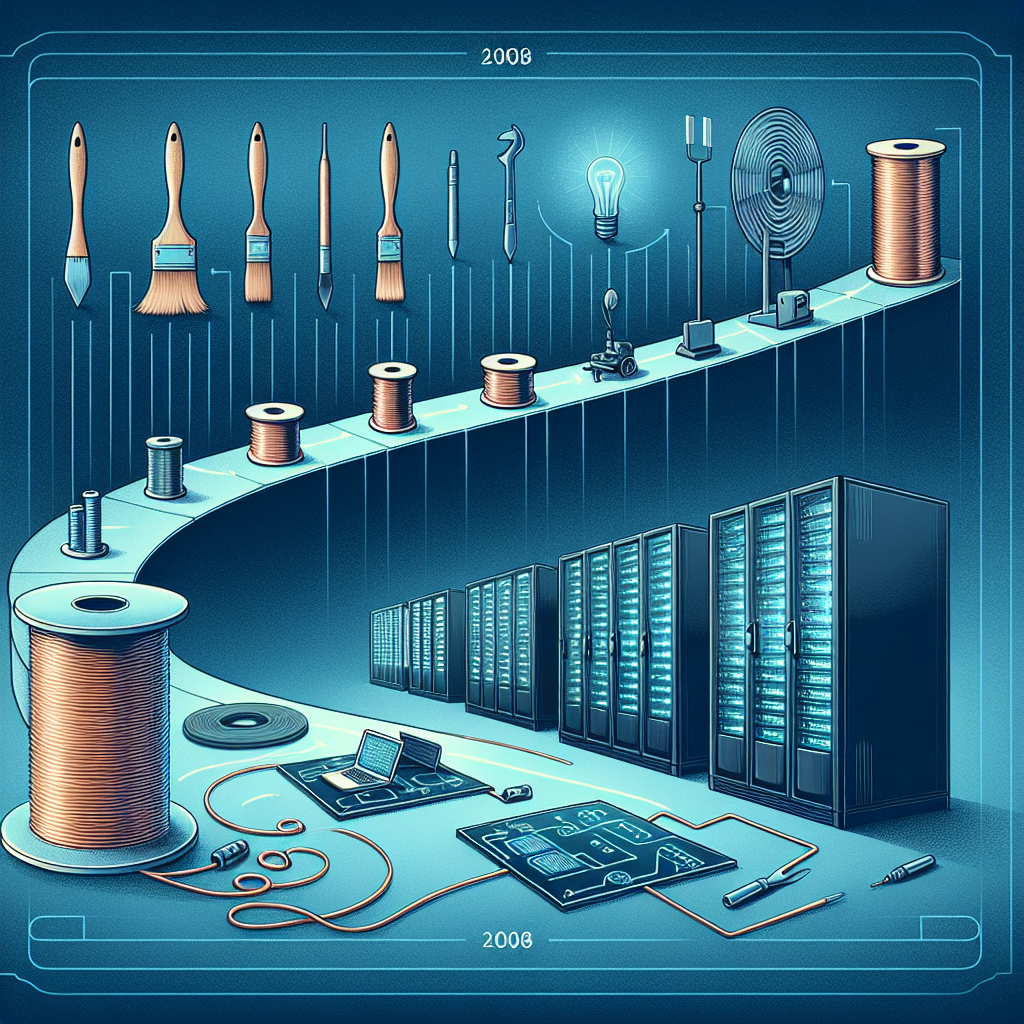
The Evolution of Electrical Systems in Modern Data Centers
Data centers are the backbone of the digital age, housing the servers and networking equipment that power our online world. As the demand for data storage and processing continues to grow exponentially, data centers have evolved to become more efficient, reliable, and scalable. One of the key components driving this evolution is the electrical system that powers these facilities.In the early days of data centers, electrical systems were relatively simple, consisting of basic power distribution units and backup generators. However, as data centers grew in size and complexity, the need for more advanced electrical systems became apparent. Today, modern data centers are equipped with sophisticated electrical systems that are designed to provide reliable power to thousands of servers and networking equipment.
One of the key advancements in electrical systems for data centers is the use of modular power distribution units (PDUs). These units allow data center operators to easily add or remove power capacity as needed, making it easier to scale up or down based on demand. Additionally, modular PDUs help to improve energy efficiency by allowing operators to distribute power more efficiently throughout the facility.
Another important development in electrical systems for data centers is the use of uninterruptible power supply (UPS) systems. These systems provide backup power in the event of a utility outage, ensuring that data center operations are not disrupted. UPS systems also help to protect critical equipment from power surges and fluctuations, reducing the risk of costly downtime and equipment damage.
In addition to modular PDUs and UPS systems, modern data centers are also incorporating advanced monitoring and control systems to optimize power usage and efficiency. These systems allow data center operators to track power consumption in real-time, identify areas of inefficiency, and make adjustments to improve performance and reduce costs.
Overall, the evolution of electrical systems in modern data centers has been driven by the need for greater reliability, efficiency, and scalability. By incorporating advanced technologies such as modular PDUs, UPS systems, and monitoring and control systems, data center operators can ensure that their facilities are able to meet the growing demands of the digital age. As the demand for data storage and processing continues to grow, it is likely that we will see further advancements in electrical systems for data centers in the years to come.
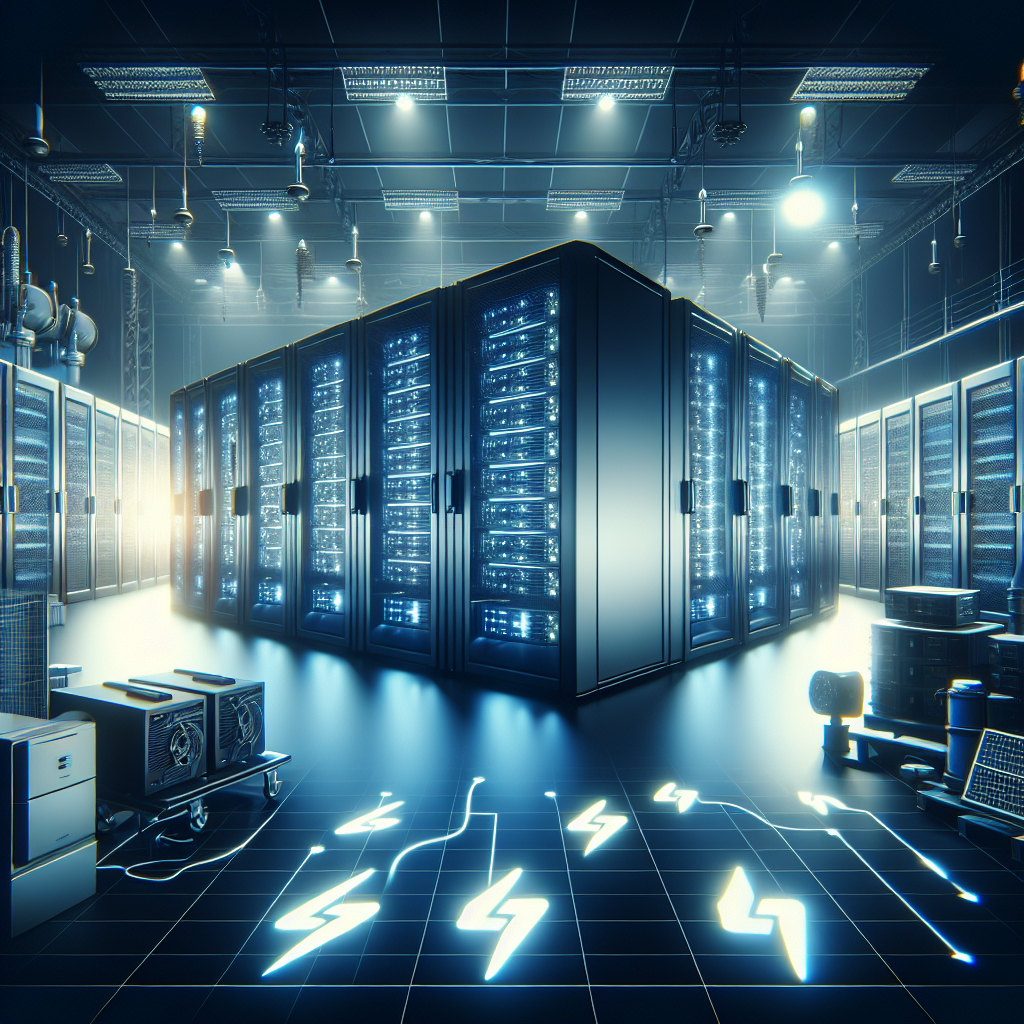
Ensuring Redundancy and Resilience in Data Center Electrical Infrastructure
In today’s digital age, data centers play a crucial role in storing and processing vast amounts of information for businesses and organizations. With the increasing reliance on technology, ensuring redundancy and resilience in data center electrical infrastructure is essential to prevent downtime and ensure continuous operations.Redundancy refers to having backup systems in place to ensure that data center operations can continue uninterrupted in the event of a power outage or equipment failure. This is crucial for maintaining the reliability and availability of data center services. Resilience, on the other hand, refers to the ability of the data center infrastructure to withstand and recover from disruptions or failures.
There are several key strategies that data center operators can implement to enhance redundancy and resilience in their electrical infrastructure:
1. Dual power feeds: Data centers should have dual power feeds from different utility sources to ensure continuous power supply in case of an outage. This can be achieved by connecting the data center to multiple utility grids or by using backup generators.
2. Uninterruptible Power Supply (UPS) systems: UPS systems provide temporary power backup in case of a sudden power outage. They help prevent data loss and ensure that critical systems remain operational until backup generators kick in.
3. Backup generators: Backup generators are essential for providing long-term power backup during extended outages. Data centers should have backup generators that are regularly tested and maintained to ensure they function properly when needed.
4. Redundant power distribution: Data centers should have redundant power distribution paths to ensure that power is distributed evenly and efficiently to all equipment. This helps prevent overloads and ensures that critical systems have access to power at all times.
5. Monitoring and maintenance: Regular monitoring and maintenance of electrical infrastructure are essential to identify potential issues before they escalate into major problems. Data center operators should conduct routine inspections, testing, and maintenance of electrical systems to ensure they are in optimal condition.
6. Disaster recovery planning: Data centers should have a comprehensive disaster recovery plan in place to address potential risks and ensure that operations can be quickly restored in the event of a major disruption. This plan should include provisions for backup power supply, data backup and recovery, and communication protocols.
By implementing these strategies, data center operators can enhance redundancy and resilience in their electrical infrastructure, ensuring continuous operations and minimizing the risk of downtime. This not only helps protect critical data and services but also enhances the overall reliability and performance of the data center.
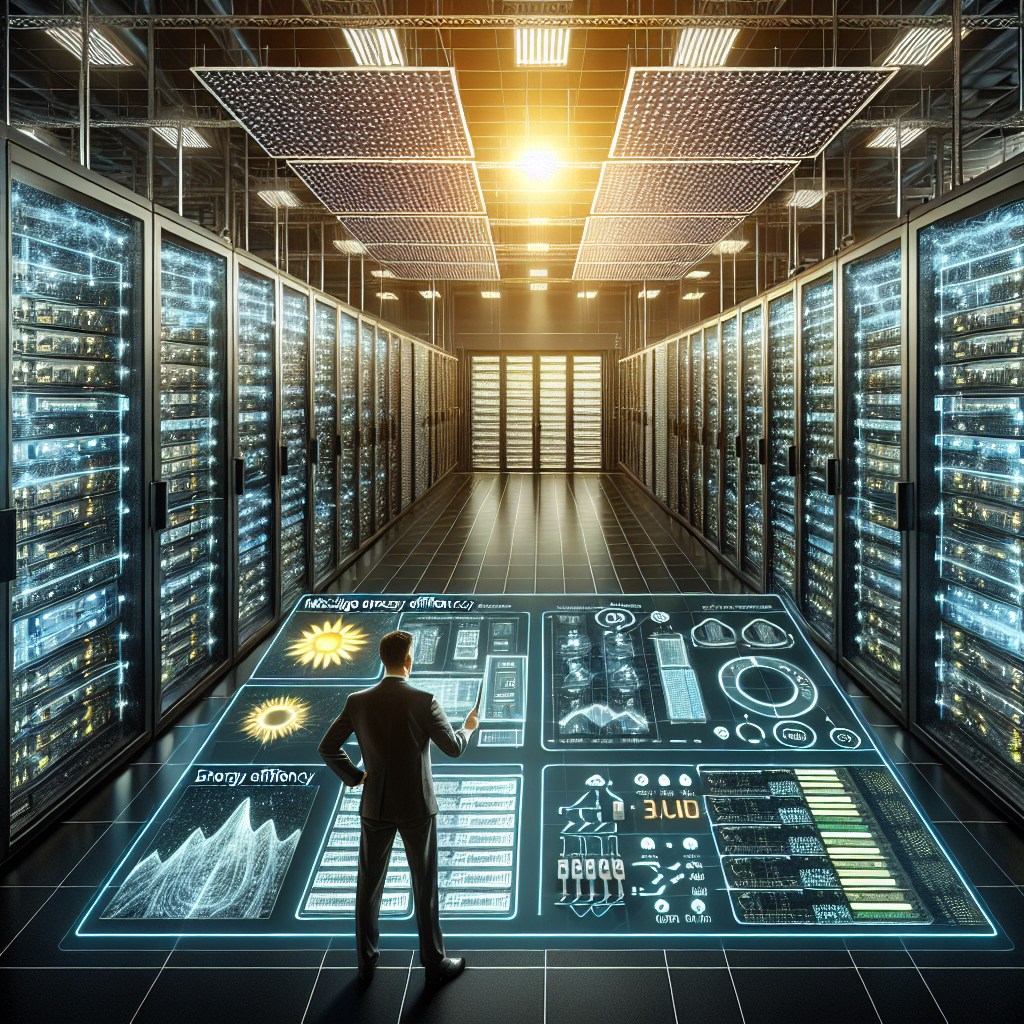
Maximizing Energy Efficiency in Data Center Electrical Systems
Data centers are the backbone of modern technology, housing the servers and equipment that power the internet and store massive amounts of data. With the increasing demand for digital services and the rise of cloud computing, data centers are consuming more energy than ever before. In fact, data centers now account for around 1% of global electricity consumption, and this figure is expected to continue growing.To address this issue, data center operators are looking for ways to maximize energy efficiency in their electrical systems. By reducing energy consumption, data centers can lower their operating costs, reduce their carbon footprint, and improve their overall sustainability. Here are some strategies for maximizing energy efficiency in data center electrical systems:
1. Implementing Energy-Efficient Cooling Systems: Cooling is one of the biggest energy consumers in data centers, as servers generate a significant amount of heat. By installing energy-efficient cooling systems, such as air-side economizers, water-side economizers, and containment systems, data centers can reduce their cooling energy consumption and improve their overall efficiency.
2. Virtualization: Virtualization technology allows multiple virtual servers to run on a single physical server, reducing the number of physical servers needed and therefore lowering energy consumption. By consolidating servers through virtualization, data centers can increase their energy efficiency and reduce their carbon footprint.
3. Utilizing Energy-Efficient Power Distribution Units (PDUs): Power distribution units are used to distribute power to servers and equipment in a data center. By using energy-efficient PDUs with features such as power monitoring, load balancing, and remote management capabilities, data centers can optimize their power distribution and improve their energy efficiency.
4. Implementing Energy-Efficient UPS Systems: Uninterruptible power supply (UPS) systems are essential for providing backup power in case of outages. By using energy-efficient UPS systems with high efficiency ratings, data centers can minimize energy losses and reduce their overall energy consumption.
5. Monitoring and Optimization: Regular monitoring of energy consumption and performance metrics is essential for identifying areas where energy efficiency can be improved. By analyzing data and optimizing systems accordingly, data centers can maximize their energy efficiency and reduce their environmental impact.
In conclusion, maximizing energy efficiency in data center electrical systems is essential for reducing energy consumption, lowering operating costs, and improving sustainability. By implementing energy-efficient cooling systems, virtualization, energy-efficient PDUs, UPS systems, and monitoring and optimization strategies, data centers can optimize their electrical systems and achieve significant energy savings. As the demand for digital services continues to grow, it is imperative for data centers to prioritize energy efficiency and sustainability in order to meet the challenges of the future.
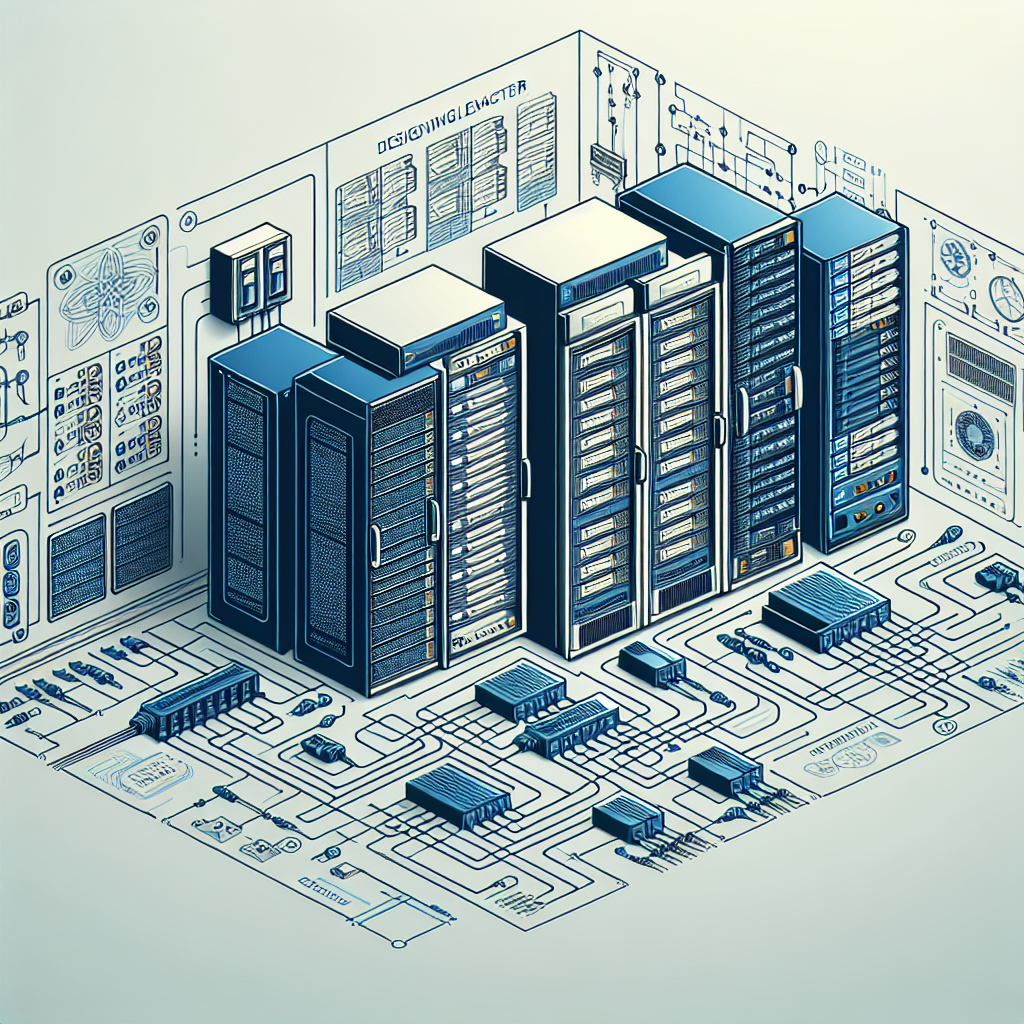
Key Considerations for Designing Data Center Electrical Systems
Designing a data center electrical system is a crucial part of building a reliable and efficient facility. There are several key considerations that need to be taken into account to ensure that the electrical system meets the needs of the data center. In this article, we will discuss some of the most important factors to consider when designing a data center electrical system.1. Capacity Planning:
One of the first things to consider when designing a data center electrical system is the capacity requirements of the facility. This includes determining the amount of power that will be needed to support the servers, cooling systems, and other equipment in the data center. It is important to plan for future growth in capacity to ensure that the electrical system can accommodate any additional equipment that may be added in the future.
2. Redundancy:
Redundancy is a critical aspect of data center design, especially when it comes to the electrical system. Redundant power sources, such as backup generators and uninterruptible power supplies (UPS), are essential to ensure that the data center remains operational in the event of a power outage. Redundancy should be built into every aspect of the electrical system, from the power source to the distribution system.
3. Scalability:
Scalability is another important consideration when designing a data center electrical system. The electrical system should be designed to be easily scalable so that additional capacity can be added as needed without requiring a complete overhaul of the system. This includes ensuring that there is enough space for additional equipment, as well as the ability to easily add new power sources and distribution equipment.
4. Energy Efficiency:
Energy efficiency is a key consideration in data center design, as these facilities can consume a significant amount of power. When designing the electrical system, it is important to consider energy-efficient technologies, such as high-efficiency UPS systems and cooling equipment. By reducing the energy consumption of the data center, not only can operating costs be lowered, but also the environmental impact of the facility can be minimized.
5. Safety and Compliance:
Safety is paramount when designing a data center electrical system. The system should be designed to meet all relevant safety standards and codes, including those related to electrical wiring, grounding, and fire protection. Compliance with these standards is essential to ensure the safety of personnel working in the data center and to prevent accidents or fires.
In conclusion, designing a data center electrical system requires careful planning and consideration of several key factors. By taking into account capacity planning, redundancy, scalability, energy efficiency, and safety and compliance, data center operators can ensure that their electrical systems are reliable, efficient, and safe. By investing in a well-designed electrical system, data center operators can minimize downtime, reduce operating costs, and ensure the reliability of their facilities.
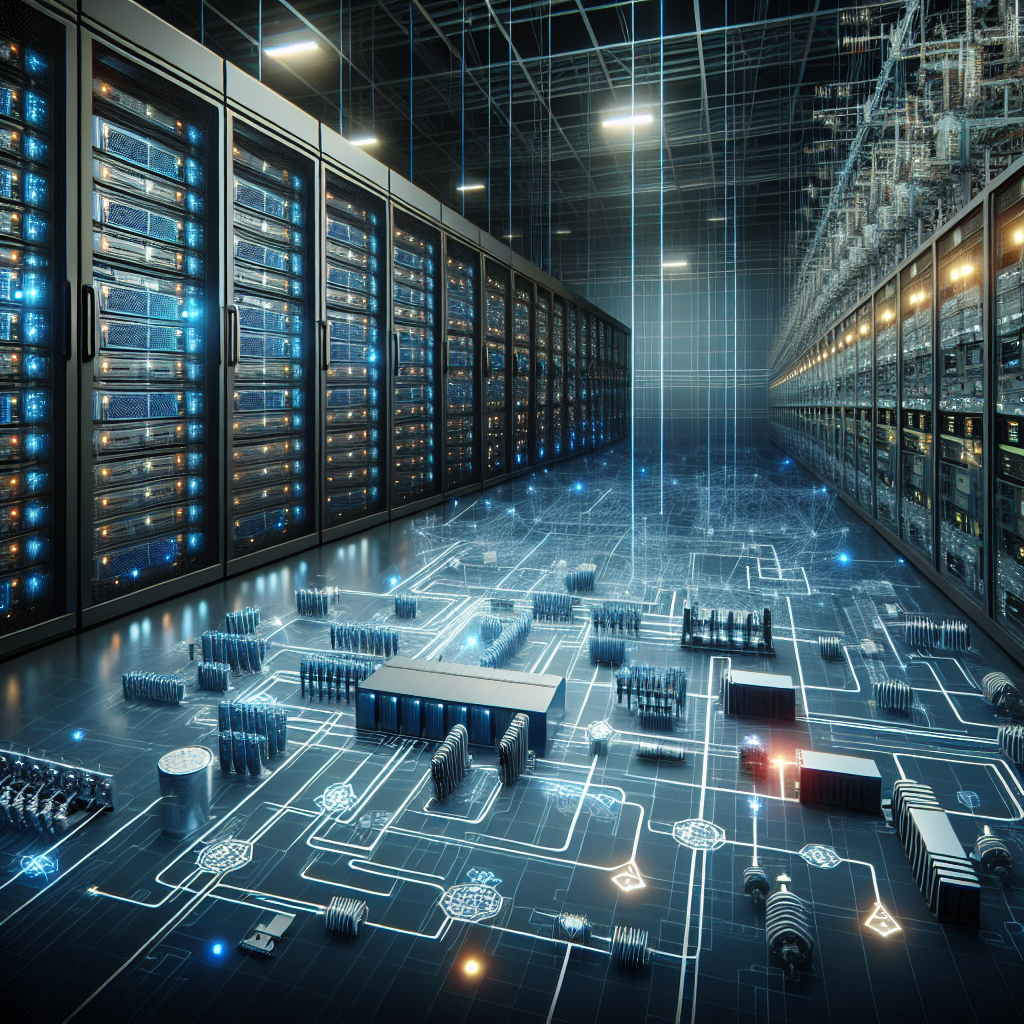
Understanding the Role of Electrical Infrastructure in Data Center Operations
Data centers play a crucial role in today’s digital world, serving as the backbone of the internet and powering the technology that we rely on every day. However, behind the scenes of these massive facilities lies a complex network of electrical infrastructure that is essential for their operation.Understanding the role of electrical infrastructure in data center operations is key to ensuring the reliable and efficient performance of these facilities. From powering servers and cooling systems to ensuring uninterrupted operation during power outages, electrical infrastructure is the lifeblood of data centers.
One of the primary functions of electrical infrastructure in data centers is to provide power to the servers and networking equipment that store and process data. This requires a robust electrical system capable of delivering high levels of power to support the demanding requirements of modern data centers. This includes redundant power supplies, backup generators, and uninterruptible power supply (UPS) systems to ensure continuous operation in the event of a power outage.
In addition to providing power to the equipment, electrical infrastructure also plays a crucial role in maintaining the optimal operating conditions within the data center. This includes powering the cooling systems that regulate the temperature and humidity levels to prevent overheating and ensure the reliability of the equipment. Proper ventilation and air conditioning systems are essential to keeping the servers running smoothly and preventing downtime due to overheating.
Furthermore, the electrical infrastructure in data centers must be designed to accommodate the growing demand for power as data center operations continue to expand. This requires careful planning and design to ensure that the electrical system can support the increasing power requirements of new servers and networking equipment.
Another important aspect of electrical infrastructure in data centers is the implementation of energy-efficient technologies to reduce power consumption and minimize the environmental impact of these facilities. This includes the use of energy-efficient servers, cooling systems, and lighting, as well as the implementation of power management systems to optimize energy usage and reduce operating costs.
In conclusion, the role of electrical infrastructure in data center operations cannot be overstated. From providing power to the equipment and maintaining optimal operating conditions to accommodating the growing demand for power and implementing energy-efficient technologies, electrical infrastructure is essential for the reliable and efficient operation of data centers. By understanding the importance of electrical infrastructure in data centers, organizations can ensure the performance and reliability of their facilities and meet the ever-increasing demands of the digital world.
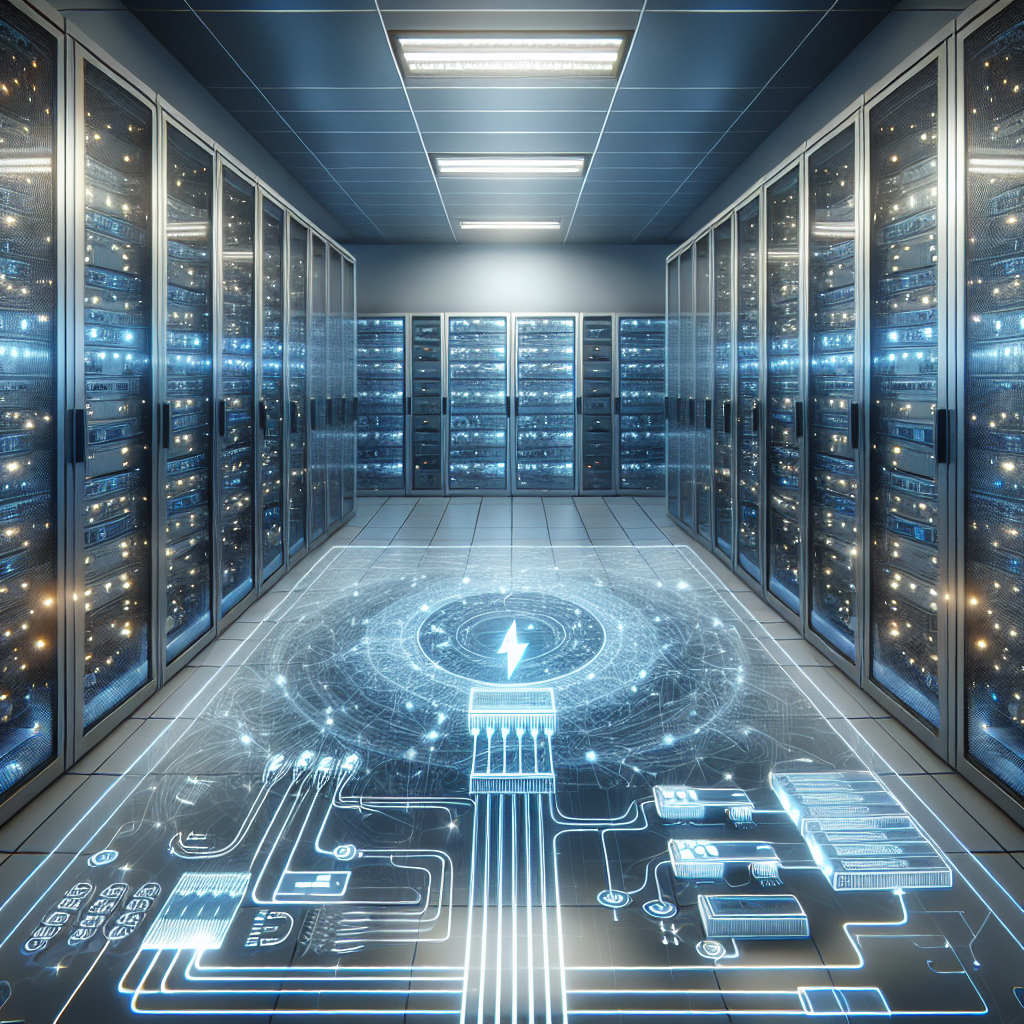
The Importance of Reliable Electrical Systems in Data Centers
Data centers are the backbone of the digital world, housing the servers and infrastructure that power everything from social media platforms to online shopping websites. With the increasing reliance on digital services, the importance of reliable electrical systems in data centers cannot be overstated.One of the primary functions of a data center is to ensure that the servers and equipment housed within are constantly powered and operational. Any interruption in power supply can lead to downtime, which can have serious consequences for businesses and their customers. Downtime can result in lost revenue, decreased productivity, and damage to a company’s reputation.
To prevent downtime, data centers must have reliable electrical systems in place. This includes backup power systems such as uninterruptible power supplies (UPS) and generators to ensure continuous power supply in the event of a grid outage. These systems are crucial for maintaining uptime and ensuring that critical data and services are always accessible.
Furthermore, reliable electrical systems in data centers are essential for ensuring the safety and security of the equipment and the data stored within. Electrical failures can pose fire hazards and cause damage to expensive hardware, resulting in costly repairs and potential data loss. By investing in reliable electrical systems, data center operators can mitigate these risks and protect their assets.
In addition to uptime and safety, reliable electrical systems are also crucial for energy efficiency. Data centers are notorious for their high energy consumption, and inefficient electrical systems can lead to unnecessary waste and increased operating costs. By implementing reliable electrical systems that are designed for optimal performance, data centers can reduce their energy footprint and lower their operational expenses.
Overall, the importance of reliable electrical systems in data centers cannot be understated. From ensuring uptime and data security to improving energy efficiency, reliable electrical systems are essential for the smooth operation of data centers and the services they provide. By investing in high-quality electrical systems and maintenance practices, data center operators can ensure that their facilities remain operational and reliable in the face of any challenges.
